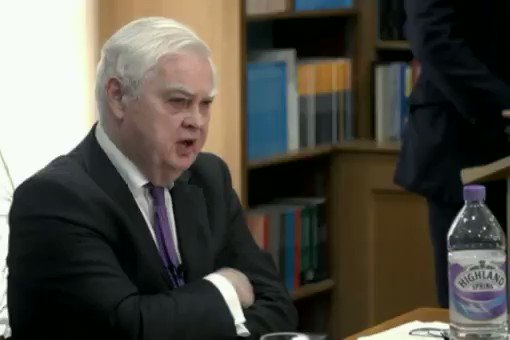But I also think that that Andrew Bailey misses the point.
https://t.co/05GOJksbBh
During the referendum the argument was made that because the EU regulatory regime was agreed with the UK that passporting would be granted.
And we were told it was crucial by Andrea Leadsom’s campaign team after the referendum.
There is a reason why financial services tend to be in separate chapters of trade deals.
They are not the average service.
Those chapters have to balance market liberalisation, market regulation, and enforcing prudential requirements.
It really comes down to the reach of the financial regulators in the various countries.
The Single Market in finance involves extensive cooperation between the financial regulators of the different memberstates.
And the result has been common rules with shared jurisprudence which has allowed them to extensively liberalise finance services within the EU.
The UK didn’t want the same regulations and regulatory regime, so they aren’t getting passporting.
It's as simple as that.
We were also told that equivalence means It “won’t make a difference to us, whether we’re in the EU or not, in terms of passporting financial services”.
To put this into the context of reality, outside of the EU there is no equivalence access to replace the Capital Requirements Directive.
Similarly there is no equivalence access to replace the payment service directive.
There is no framework for Undertakings for Collective Investment in Transferable Securities outside the Single Market either.
This leaves Financial Instruments Directive (and possibly support for the Alternative Investment Fund Managers Directives).
Consequently, financial institutions had to move some work to continue day to day trading regardless of equivalence.
If the EU is requiring tougher standards than other countries, it’s important to note that the other countries are in a situation where they are aligning their legislation, whereas the UK is aligned and demanding the right to diverge.
It's not a great look.
It’s also incredibly unlikely they are exporting financial services to the same value as the UK does.
Which is important, the bigger share the UK has of the EU market, the more risk the EU take on.
The UK is no longer working closely with other EU regulators, they are no longer on common rules, and they no longer are in the same judicial system.
The EU has no control over the terms of financial chapters in trade deals.
The UK has take back control, and the inevitable consequence is that the EU no longer has control in the event of a problem, and so the UK is a bigger risk now than they were as a memberstate.
So the complaint ‘they are holding us to a higher standard than the countries in the EU’ is a void argument, because the EU is taking on greater risk.
It's legitimate to want higher standards in the face of higher risks.
The argument is also moot because nobody is arguing that French and Polish and Romanian workers should be able to exercise free movement because they are the same people, of the same standard, as they were before the UK left the EU.
The whole point of Brexit wasn’t based on standards, it was about wanting a new relationship.
And in renegotiating that new relationship, the UK have given the EU the ability to also redefine that relationship.
Furthermore, the people running the UK at this moment rabidly pursued a relationship that damaged both the UK and the EU economically.
Not once can I think of a time when the UK politicians gave a fig about the economic damage to the EU, and it’s quite reasonable for the EU to look at ways in which the new relationship could benefit them to offset the damage of the UK's choice.
If the EU decide that they profit from not giving the UK equivalence, then that’s the dice the UK rolled, and it has nobody else to blame but itself.
People like Liam Fox, Normal Lamont, Gerald Howarth all waved away the problem in the same way they dismissed the Irish border problem.
Personally I think the EU should grant equivalence, but it’s difficult to expect it when the UK government still want to publicly blame the EU for their ignorance and their bad choices driven by their ideology.
And if it does give equivalence, then it can withdraw it at any time. The sword will be forever hanging over the city ready to drop at the next scandal.
But in any case I believe the city will reinvent itself, and it will be OK whatever. Just not as powerful as it could have been had we stayed in the EU.
Which is a shame, but then, I didn’t vote to take a leap into the dark and even if I had done, I'd have still understood and accepted that passporting wasn't going to be possible if we left the Single Market.
/End



